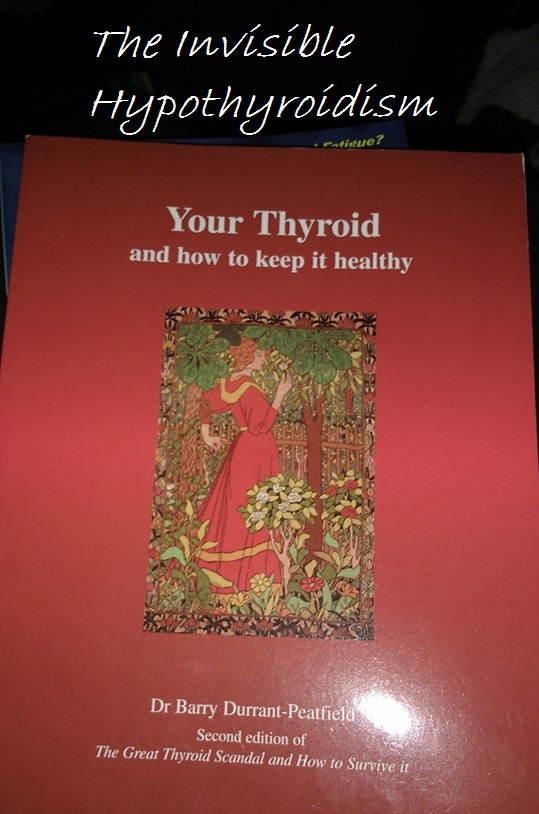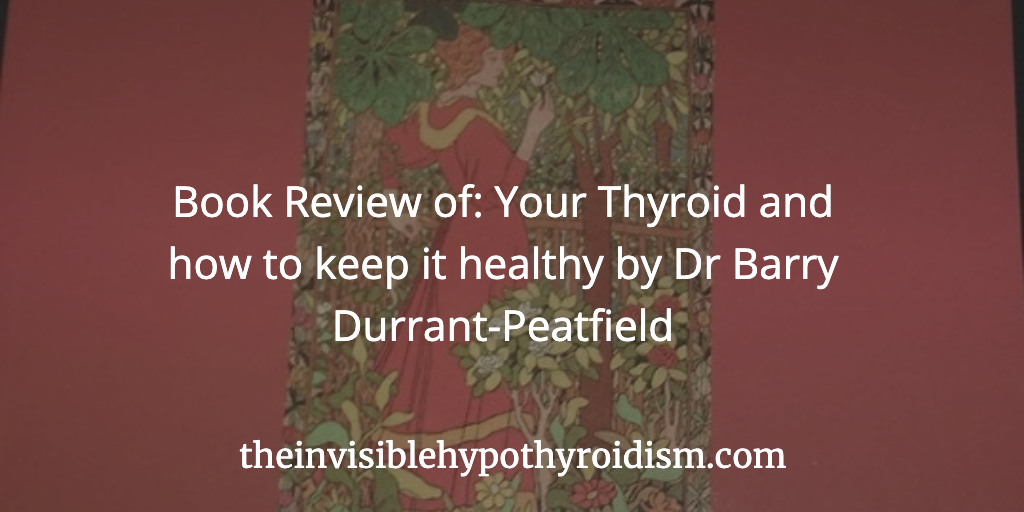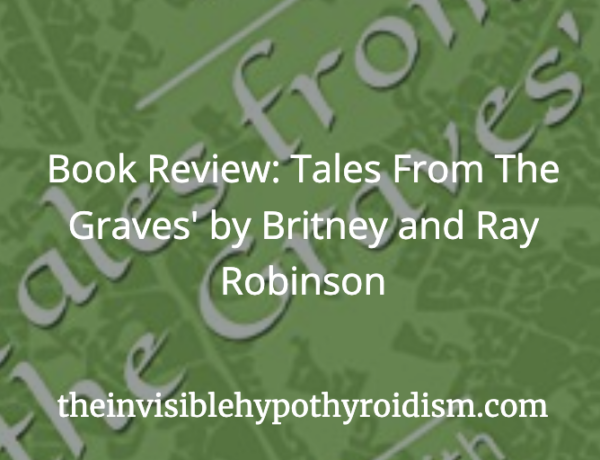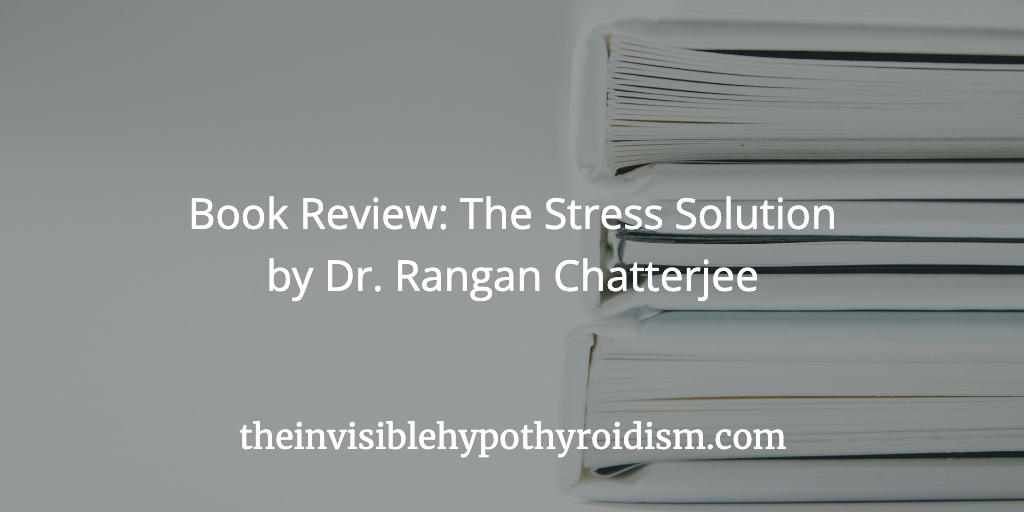
Most importantly, it feels honest. I felt the writer’s genuine goal to help people help themselves.
The book covers lots of information about having a thyroid disorder, how to recognise associated problems, and how to take an active part in your own treatment.
I may reference back to this book and what I’ve learnt from it throughout my blog posts.
This book is well-written, honest and memorable.
There’s an introduction to Dr Barry Durrant-Peatfield, which explains how he fell out of favour with the NHS (essentially, he often prescribed NDT medication and acknowledged that hypothyroidism is a lot more common than most other doctors believe it to be).
He’s very popular with thyroid patients and other thyroid advocates, and I’ve had many people reach out to me to share their own experience with seeing him as a doctor. He is very much loved in the thyroid community.
The first couple of chapters explain what thyroid problems actually are and how they occur biologically. I found it hard to follow at times as I’m naturally not a science-brained person, but its more for extra info than essential knowledge. It is really interesting. You can always re-read it too.
I liked his introduction which included history about hypothyroidism, how it was ‘discovered’ and how it was treated early on. I’ve always been a bit of a history nerd, so I love these kinds of passages.
At the back of the book, he includes a list of signs and symptoms for thyroid problems, which isn’t exhaustive but will be handy for those new to the condition. Some he goes into in more detail, and I think this would be informative to patients who don’t realise just how many symptoms are related to thyroid disorders.
He also covers hyperthyroidism in this book, which is an interesting read. Even as someone with hypothyroidism, it helps to have some knowledge about hyperthyroidism, if for any reason, you were over medicated for example or your type of thyroid condition changes. I just love learning about all things thyroid-related, myself.
He covers possible causes for thyroid disease in quite some detail, which is food for thought and very interesting. It gives you ideas on what could have caused or contributed to your own. Whether this is helpful as such, I’m not sure. I personally don’t feel it’s that beneficial to focus on the past and trigger of your thyroid issue much past looking to rectify this so you can move forwards in your health (i.e. stress).
He also covers the options for thyroid treatment, and it’s clear to see he supports natural, non-synthetic treatments. He wastes no time explaining why he feels NDT is the medication of choice. He dispels a few of the myths doctors are known to use when they scare patients about using NDT. It’s also evident that he’s particularly interested in the metabolism, which thyroid patients can have difficulty managing, and his input is rather insightful. There’s a passage on losing weight and the relationship with carbs that is super interesting.
Other hormones, not just thyroid ones, are covered, including DHEA, Melatonin and sex hormones, which some thyroid patients may find they also have imbalances in. He also explains why he favours urine samples rather than blood samples for thyroid testing, which is certainly not conventional, but intriguing. He definitely has a non-conventional view on quite a few things.
I particularly liked his diagram of the adrenal cortex, which has stayed as a mental image with me since. A lot of the information in the book, you don’t necessarily need to know, but it is beneficial. Everything is connected, so it helps to know how and why.
He talks about ‘adrenal fatigue‘ (better termed Adrenal Dysfunction) and the link to the thyroid, which you know is something I’ve mentioned a lot, too. He gives tips on adrenal stress management, vitamins we can take to encourage adrenal recovery and health and medication, if needed.
What is evident, is his preference to try to naturally help people recover from thyroid and/or adrenal problems first, before going down the route of lifelong medication.
He does give suggestions for self-medication of thyroid meds. He even suggests that we take our health in to our own hands, and, at the end of the book, tells us to go ahead and do it, now we’ve read everything we need to know in his book. There is a whole ‘Helping Yourself’ chapter which I felt was a really positive way to end the book.
Having been diagnosed with chronic fatigue syndrome myself (though it magically disappeared once I switched to NDT), I found the chapter on this to be particularly interesting, and I know a lot of others with the diagnosis will, too. He explains what he feels could be the ’causes’ for it, despite many doctors not knowing what causes it themselves.
The chapter on depression I feel is very important and another that non-thyroid patients should read. So many thyroid patients struggle with mental health, but so do people who go undiagnosed with thyroid problems. There is a connection with mental health and the thyroid hormone T3, which is something I have already covered, and Durrant-Peatfield covers it in more scientific detail, as well as other causes for depression. It is incredibly interesting reading.
Overall, I think most thyroid patients would find this book to be very helpful and informative. It covers a lot, in what is actually not a very long book. It could be helpful to those who think they may have thyroid problems, too. It’s scientific, refreshing and honest. The style in which it was written made me feel empowered each time I read a chapter or two.
You can get a copy of this book from Amazon here.
Have you read this book? What did you think?
You can click on the hyperlinks in the above post to learn more and see references to information given.






No Comments